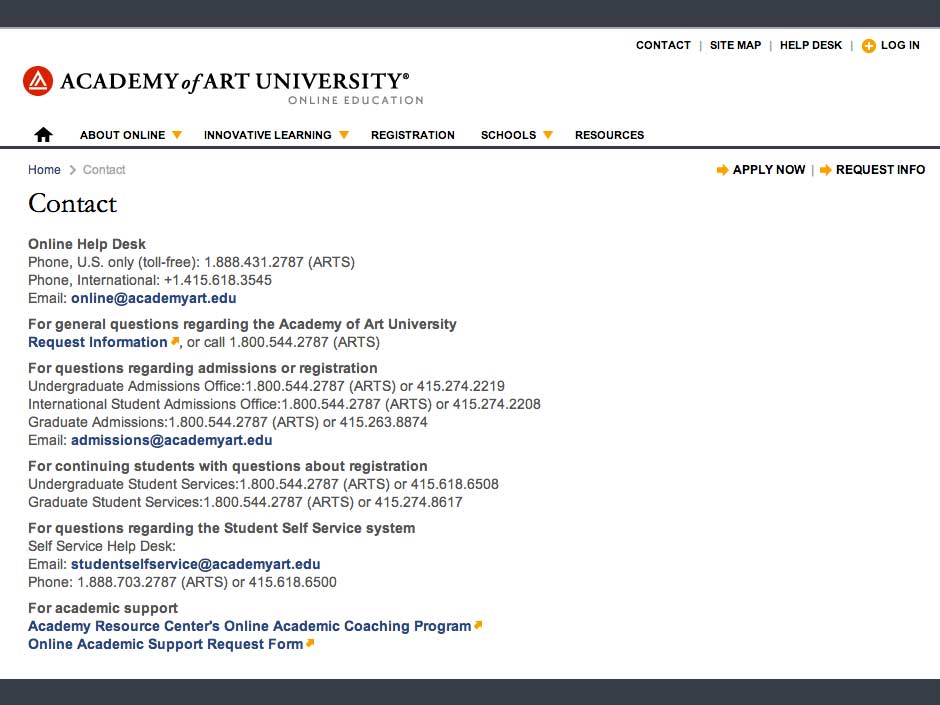Online bachelor’s degree stands at the forefront of modern education, offering students a flexible and accessible pathway to higher learning without the constraints of traditional classroom settings. This innovative approach to education not only accommodates diverse lifestyles but also caters to a wide array of academic disciplines, from the arts to the sciences. As the demand for skilled professionals continues to rise, understanding the nuances of online bachelor’s degrees becomes essential for those seeking to advance their careers while juggling personal commitments.
Various types of online bachelor’s degrees are available, presenting an impressive spectrum of options that enable students to tailor their studies to their interests and career aspirations. With the added advantages of convenience, cost-effectiveness, and the ability to study at one’s own pace, online education significantly enhances the prospects for students eager to earn their degree while maintaining a balance between work and life.
Overview of Online Bachelor’s Degrees
An online bachelor’s degree represents a comprehensive higher education qualification that can be obtained through digital platforms, deviating from the traditional campus-based learning. This mode of education has gained significant traction due to its flexibility and accessibility, catering to a diverse range of learners, including those balancing work and personal commitments.
Online bachelor’s degrees span a multitude of disciplines, offering students the opportunity to pursue their interests and career goals from the comfort of their own homes. The array of fields available includes, but is not limited to, business, computer science, healthcare, education, and the arts. These programmes are designed to deliver the same academic rigor and quality as their traditional counterparts, ensuring that graduates are well-prepared for the workforce.
Types of Online Bachelor’s Degrees
The variety of online bachelor’s degrees offers prospective students a wide selection to choose from, enabling them to tailor their education to suit their aspirations. The following categories exemplify the broad spectrum of online degree options:
- Business Administration: This degree equips students with essential skills in management, finance, and marketing, preparing them for leadership roles in various industries.
- Computer Science: Focusing on programming, software development, and systems analysis, this degree meets the growing demand for technology professionals.
- Nursing: Online nursing degrees provide flexibility for aspiring nurses while maintaining rigorous standards required for licensure.
- Psychology: This degree explores the intricacies of human behaviour, preparing graduates for roles in counselling, research, and therapeutic settings.
- Education: An online degree in education offers pathways for future teachers, focusing on curriculum development and pedagogical techniques.
- Graphic Design: This programme nurtures creativity and technical skills in visual communication, essential for careers in marketing and advertising.
Advantages of Online Bachelor’s Degrees
Pursuing an online bachelor’s degree presents numerous advantages over traditional in-person education. One of the primary benefits is the flexibility it affords students, allowing them to engage in their studies at times that suit their individual schedules. This aspect is particularly beneficial for working professionals or those with family responsibilities.
Additionally, online degrees often come with reduced costs, as students save on transportation, accommodation, and materials. The ability to study from anywhere also expands access to reputable institutions, enabling learners to select programs that align perfectly with their career ambitions without geographical limitations.
“Online education provides a unique opportunity to balance work, study, and personal life, making higher education accessible to a broader audience.”
Ultimately, the pursuit of an online bachelor’s degree empowers students with the necessary knowledge and skills while accommodating their varied lifestyles and commitments, paving the way for success in their chosen fields.
Enrollment and Admission Process: Online Bachelor’s Degree

Embarking on an online bachelor’s degree journey requires a clear understanding of the enrollment and admission processes that vary across institutions. From initial research to submitting your application, each step is crucial in securing your place in the programme of your choice.
The first step in enrolling for an online bachelor’s degree programme is to research potential colleges and universities. This research should include an examination of the programmes offered, faculty qualifications, and the institution’s accreditation status. After identifying suitable institutions, applicants must prepare the necessary documentation for their applications. Different colleges may have varying requirements; thus, familiarity with what each institution expects is vital to a smooth application process.
Steps to Enroll in an Online Bachelor’s Degree Programme
Understanding the specific steps involved in the enrolment process is essential. The following list Artikels key stages that prospective students typically navigate:
- Research and select suitable online colleges or universities.
- Review individual programme details and admission requirements.
- Prepare application materials, including personal statements and transcripts.
- Submit online applications, adhering to deadlines.
- Await confirmation of application status and provide any additional requested information.
- Receive acceptance and complete enrolment procedures.
Preparing Application Materials for Online Degree Programs
Effective preparation of application materials is vital for a successful admission process. Applicants should ensure that their documents represent their qualifications and aspirations accurately. Important materials typically include:
- A well-crafted personal statement detailing your motivations and academic goals.
- Official transcripts from previous educational institutions, showcasing academic history.
- Letters of recommendation from educators or professionals familiar with the applicant’s capabilities.
- Standardised test scores (if required), which may include SAT or ACT results.
Common Admission Requirements for Online Colleges and Universities
While specific requirements can vary, many online colleges and universities share common admission criteria. Familiarity with these can help streamline the application process and enhance your chances of acceptance. The usual requirements include:
- High school diploma or equivalent qualification.
- Completion of a formal application form.
- Submission of personal statements or essays.
- Proof of English language proficiency for non-native speakers.
- Interviews may be conducted for specific programmes or applicants.
Understanding the admission requirements and preparing accordingly can significantly enhance the likelihood of a successful application.
Financial Considerations and Aid

Pursuing an online bachelor’s degree represents a significant financial commitment. Understanding the associated costs and available financial aid options is crucial for prospective students. This section delves into the average costs involved in obtaining an online degree, as well as the various financial support mechanisms designed to facilitate access to higher education.
Average Costs of Online Bachelor’s Degrees
The financial implications of enrolling in an online bachelor’s programme can vary greatly depending on the institution, the programme chosen, and the student’s residency status. On average, tuition fees for online bachelor’s degrees range from £5,000 to £15,000 per year for UK-based institutions. Additionally, students should consider other expenses such as registration fees, textbooks, and technology requirements. A breakdown of typical costs includes:
- Tuition Fees: £5,000 to £15,000 per annum
- Textbooks and Learning Materials: Approximately £200 to £600 annually
- Technology Costs: Estimated at £100 to £300 for a reliable computer and internet access
- Miscellaneous Fees: Such as examination or graduation fees, which can add another £100 to £500
These figures illustrate the necessity for prospective students to budget carefully when considering their online education options.
Financial Aid Options and Scholarships
Numerous financial aid options are available to support online students in managing their educational expenses. Understanding these options can alleviate the financial burden associated with obtaining a degree. Key avenues of financial support include:
- Government Grants: Such as the Maintenance Grant or Disabled Students’ Allowance (DSA), which do not require repayment.
- Student Loans: The Student Loans Company offers loans that can cover tuition fees and living costs, which must be repaid after graduation.
- Institutional Scholarships: Many universities offer scholarships specifically for online learners, aimed at recognising academic achievement or financial need.
- External Scholarships: Various organisations, such as charities and foundations, provide scholarships for online students. Notable examples include the Online Learning Consortium and the Education Foundation.
Utilising these financial aid options can significantly reduce the total cost of education for online students.
Comparison of Tuition Fees for Different Online Bachelor’s Programs
Understanding the range of tuition fees across various online bachelor’s programmes can assist students in making informed choices. The table below presents a comparison of tuition fees from esteemed institutions offering online degrees:
| University | Programme | Annual Tuition Fee (£) |
|---|---|---|
| University of London | BA in Business Administration | £10,500 |
| Open University | BSc in Computing and IT | £6,000 |
| University of Edinburgh | BA in Social Sciences | £14,000 |
| University of Birmingham | BSc in Psychology | £9,250 |
| University of Glasgow | BA in Education | £7,500 |
This comparative analysis highlights the diversity in tuition fees, allowing prospective students to select a programme that aligns with their financial capacity.
Career Opportunities and Outcomes
Graduates with an online bachelor’s degree are well-positioned to enter a diverse array of professional fields. The flexibility and accessibility of online education have made it a popular choice for individuals looking to enhance their qualifications while balancing work, life, and study commitments. With an accredited online degree, graduates can unlock numerous career pathways that promise not only job satisfaction but also significant financial rewards.
The types of careers available to graduates are extensive and vary across industries. Fields such as business, healthcare, information technology, education, and social services are particularly accommodating to online degree holders. Many of these sectors are experiencing robust growth, resulting in an increasing demand for qualified professionals. For instance, graduates may pursue roles such as business analysts, healthcare administrators, IT specialists, and educators.
Job Placement Rates and Salary Insights
The employment landscape for online degree holders is promising, characterised by strong job placement rates and competitive salaries. Research indicates that graduates with online bachelor’s degrees enjoy similar job placement rates to their on-campus counterparts. According to a study by the Online Learning Consortium, approximately 87% of graduate respondents reported being employed within six months of graduation.
Moreover, salaries for online degree holders can reflect significant variances depending on the industry and position. For example, data from the U.S. Bureau of Labor Statistics reveals that IT professionals with a bachelor’s degree can earn an average salary exceeding £40,000 per annum, while healthcare administrators can earn upwards of £50,000.
Leveraging an Online Degree for Career Advancement, Online bachelor’s degree
An online bachelor’s degree not only facilitates entry into the job market but also serves as a valuable tool for career progression. Graduates can leverage their qualifications to pave the way for promotions and advanced roles within their industries. To achieve this, it is crucial to actively engage in networking, professional development, and skill enhancement.
Utilising online platforms like LinkedIn, graduates can connect with industry leaders and join professional groups to increase their visibility. Furthermore, many online degree programs offer resources such as career services and alumni networks, providing essential support in navigating the job market. By capitalising on these resources, graduates can enhance their career trajectories and position themselves favourably for advancement opportunities.
In summary, the career opportunities available to graduates with an online bachelor’s degree are vast and varied, supported by promising job placement statistics and the potential for substantial salaries. By strategically leveraging their online education, graduates can not only secure employment but also foster long-term career growth across multiple industries.